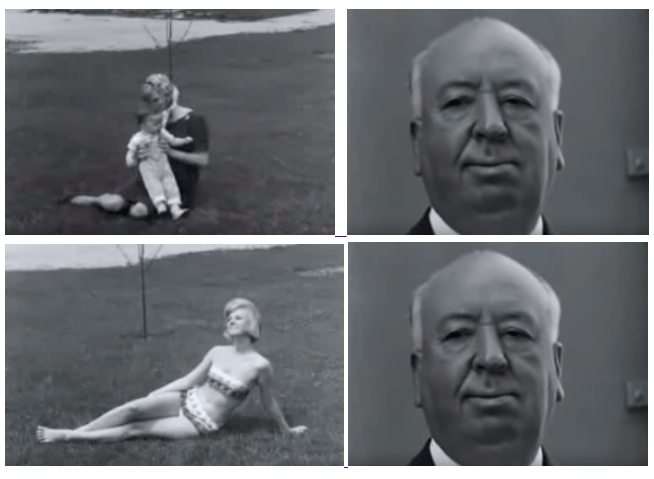Show, Don't Sell Your Game
If you ask someone if they'd like to watch a bunch of ads, they'd likely say "HECK NO!" because we know ads are designed to sell us stuff we may or may not want. If you ask someone buying a car if they'd like to work with a car salesman, they'll probably say "NOOOOOOOOOOOOO!!!" because we naturally assume salespeople are looking out for their own interests more than ours.
We understand the necessity of advertising like trailers, but we want to do our own research and draw our own conclusions. We want to feel smart for getting the thing through our own effort, not because someone convinced us it was good.
Inexperienced game trailer editors do a lot of stuff which reveal them as the suspicious, self-serving sales people. This includes but is not limited to
Title cards are the easiest way to betray your presence as the trailer editor or marketer, because it's the most prominent part of the trailer which clearly does not exist in the game. It was added to the trailer to sell it. Therefore, you should think of every title card as you, the salesperson, jumping in front of the camera to hype up the audience. Just think of how unappealing that is to the consumer!
To test the efficacy and appeal of your title cards, just imagine cutting in footage of a salesperson, or overlaying footage of a salesperson saying the exact same words directly to the audience. In most cases, I think you'll find you do not want that, especially because it can impede the audience's ability to see the footage. The best case is when a title card or voiceover illustrates something which is otherwise invisible or inscrutable to the audience. This is good because in those cases the title cards are there to help, not hype.
NO THANKS, I'M GOOD!
This is why in most of my trailers I strive for my influence as the trailer producer to be as invisible as possible. I don't want the audience to feel my presence, because I worry that will diminish the influence of the trailer. I want people to watch the trailer and assume they've been given the means to make their own decisions about the game.
But just because my presence is invisible, doesn't mean it's not doing everything in its power to make a convincing case.
As soon as I, as the editor, decide to include something (and exclude something else) that is me exerting influence; that is me pressing my thumb down on the proverbial scale. It's an incredibly powerful tool to edit what images people see and in what order. This power can easily be used for manipulative or unethical purposes. This is how people create propaganda or misleading ads. But just because it can be used for nefarious purposes doesn't mean the means is inherently evil.
I'm fortunately not in the position where I'm working on games which I think are bad and need to be edited within an inch of their life in order to look presentable and playable. This has fortunately been mostly true of my career, but there have been some exceptions where I'd have to cut around broken or bad-looking stuff in order to make a good looking trailer.
Just gonna re-use this example of how editing influences 'cause it's never not true.
My challenge is to take a game which is very good, then capture and edit together shots which help the audience see this for themselves without me shouting all its virtues. This is why I focus so much on making ideas in a trailer clear and easy to understand BUT in a way where the audience sees it without me outright saying it.
Unfortunately, the easiest and clearest way for me to convey an idea is to just explain it. For example, if I wanted to tell a young child the flame of a candle is hot and dangerous, I would say something like: "Don't put your hands near the flame; it's very hot and you could badly burn yourself!" As much as they might trust me, they'll probably still want to try putting their finger over the flame to see for themselves (assuming they have access to a candle when not being supervised O_O) at which point the idea will then become VERY CLEAR. A somewhat less dangerous way to convey this idea might be to take a small scrap of paper and burn it with the flame (but playing with fire is always dangerous. Maybe I should've come up with a different analogy, lol).
I'm trying to make the game look as good as possible in every moment of those short 90 seconds. I do this by focusing on the game's unique strengths, making sure the game capture is very clear, easy to understand, fun to watch, and tells a story. I'm not trying to make a video which is just an assortment of cool shots. It's a story of the player's experience with a beginning, middle, and end.
If you've ever looked into a jewelry store window, you've likely been amazed at how sparkly the diamonds are from every possible angle; it's almost as if they're alive. If you've ever seen a diamond ring in real life, you have to move the ring around a lot to find one glint of sparkle. This is because the diamonds in the jewelry store aren't lit by normal lightbulbs. They're lit by a series of lights which each have even more lights within them and they're all shining down on the rings and necklaces. Same ring, different conditions.
If you aim this at a diamond ring you can expect it to sparkle from at least 16 angles instead of one. And if you aim even more of them...
This is one way I view my role as a game trailer editor. Except, rather than shining a light onto the diamond, I'm polishing every facet and then showing you the sparkly bits one after another. What I'm NOT doing is saying: "THE SPARKLIEST DIAMOND YOU'VE EVER SEEN!"
This all just a long way to once again say: Show, Don't Tell. Or I suppose in this case: Show, Don't Sell.



